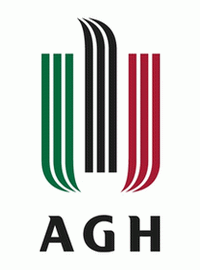Chemistry
Chemistry is the scientific discipline involved with compounds composed of atoms, i.e. elements, and molecules, i.e. combinations of atoms: their composition, structure, properties, behavior and the changes they undergo during a reaction with other compounds. Chemistry addresses topics such as how atoms and molecules interact via chemical bonds to form new chemical compounds. There are four types of chemical bonds: covalent bonds, in which compounds share one or more electron(s); ionic bonds, in which a compound donates one or more electrons to another compound to produce ions (cations and anions); hydrogen bonds; and Van der Waals force bonds.
Environmental Protection
Environmental protection is a practice of protecting the natural environment on individual, organization controlled or governmental levels, for the benefit of both the environment and humans. Due to the pressures of overconsumption, population and technology, the biophysical environment is being degraded, sometimes permanently. This has been recognized, and governments have begun placing restraints on activities that cause environmental degradation. Since the 1960s, activity of environmental movements has created awareness of the various environmental problems. There is no agreement on the extent of the environmental impact of human activity and even scientific dishonesty occurs, so protection measures are occasionally debated.
Teacher
A teacher (also called a school teacher or, in some contexts, an educator) is a person who helps others to acquire knowledge, competences or values.
Training
Training is teaching, or developing in oneself or others, any skills and knowledge that relate to specific useful competencies. Training has specific goals of improving one's capability, capacity, productivity and performance. It forms the core of apprenticeships and provides the backbone of content at institutes of technology (also known as technical colleges or polytechnics). In addition to the basic training required for a trade, occupation or profession, observers of the labor-market recognize as of 2008 the need to continue training beyond initial qualifications: to maintain, upgrade and update skills throughout working life. People within many professions and occupations may refer to this sort of training as professional development
Protection
If you are not ready, and did not know what to do, it could hurt you in different ways. It could knock you down, hard, or throw you against a tree or a wall. It is such a big explosion, it can smash in buildings and knock signboards over, and break windows all over town, but if you duck and cover, like Burt [the Turtle], you will be much safer.
From Duck and Cover (1951), about protecting yourself from an atomic explosion.
Chemistry
The alchemical tradition assumes that every physical art or science is a body of knowledge which exists only because it is ensouled by invisible powers and processes. Physical chemistry, as it is practiced in the modern world, is concerned principally with pharmaceutical or industrial research projects. It is confined within the boundaries of an all-pervading materialism, which binds labor to the advancement of physical objectives.
Manly Palmer Hall (1988) Meditation Symbols in Eastern & Western Mysticism
Chemistry
Every chemical substance, whether natural or artificial, falls into one of two major categories, according to the spatial characteristic of its form. The distinction is between those substances that have a plane of symmetry and those that do not. The former belong to the mineral, the latter to the living world.
Louis Pasteur, Vallery-Radot (ed.), Oeuvres de Pasteur (1922-1939), Vol. I, 331. Quoted in Patrice Debré, Louis Pasteur, trans. Elborg Forster (1994), 261.


